In a world where science fiction often feels like reality, biotech nursing is the superhero of healthcare. Imagine a profession where nurses don’t just administer medication but also collaborate with cutting-edge technology to revolutionize patient care. These professionals are at the forefront of innovation, blending compassion with groundbreaking advancements in biotechnology.
Table of Contents
ToggleOverview of Biotech Nursing
Biotech nursing represents a dynamic intersection of healthcare and technology. This profession integrates advanced biotechnological tools and procedures with traditional nursing practices.
Definition of Biotech Nursing
Biotech nursing involves the application of biotechnology in patient care. Nurses in this field use cutting-edge tools and techniques to develop treatments, monitor health conditions, and support patients through complex therapies. They possess specialized training that allows them to operate advanced medical equipment and interpret diagnostic tests. This dual focus on technology and compassionate care sets biotech nurses apart in the healthcare landscape.
Importance in Modern Healthcare
Modern healthcare relies heavily on the innovations offered by biotech nursing. These professionals enhance patient outcomes through the development of personalized medicine. They play crucial roles in managing chronic diseases, guiding patients through gene therapies, and establishing effective treatment plans. Biotech nurses also contribute to the research landscape by collecting vital patient data and collaborating with other healthcare professionals. Their expertise ensures that technology complements the human touch, creating a holistic approach to patient healthcare.
Key Responsibilities of Biotech Nurses

Biotech nurses play vital roles in the healthcare system, blending technology with compassionate care. Their responsibilities encompass various areas, each critical to patient outcomes.
Roles in Patient Care
Biotech nurses administer medications and therapies based on the latest biotechnological advances. They monitor patient progress closely, ensuring that treatments align with personalized medicine strategies. Assessing patients’ reactions to innovative therapies remains essential. These nurses educate patients on new treatments, maximizing understanding and adherence. Providing emotional support during complex procedures also enhances patient care. Documentation of patient data for ongoing research contributes to improving outcomes in future treatments.
Collaboration with Medical Teams
Biotech nurses regularly collaborate with interdisciplinary medical teams. Communication with doctors, researchers, and pharmacists ensures all aspects of a patient’s care remain coordinated. Attending team meetings allows them to contribute insights from patient interactions and monitoring. They facilitate the integration of new technologies into established medical practices. By sharing findings, these nurses help tailor treatments to individual patient needs. Their role promotes a cohesive approach to managing chronic diseases and evolving therapies.
Educational Pathways in Biotech Nursing
Biotech nursing offers a unique educational journey that equips professionals with the necessary skills to excel in healthcare and technology integration.
Required Qualifications
Aspiring biotech nurses typically start with a Bachelor of Science in Nursing (BSN) degree. This foundational education includes essential coursework in biology, chemistry, and healthcare ethics. After obtaining a nursing license through the NCLEX-RN exam, individuals gain clinical experience in various settings. Familiarity with biotechnology concepts enhances their practice. Advanced certifications, such as those in genomics or pharmacogenomics, further strengthen their qualifications and demonstrate expertise. Continuing education remains vital, as advancements in technology continually shape the field.
Specialized Training Programs
Specialized training programs for biotech nurses include certificate courses and workshops focused on cutting-edge biotechnology applications. Many educational institutions offer programs that delve into genetic testing, gene therapy, and personalized medicine. These courses often emphasize practical skills, allowing nurses to engage in hands-on learning experiences. Clinical internships provide opportunities to apply knowledge in real-world contexts. Many programs emphasize interdisciplinary collaboration to prepare nurses for team-based healthcare environments. Students benefit from networking opportunities, connecting them with industry professionals and potential employers.
Advancements in Biotech Nursing
Biotech nursing showcases significant advancements driven by technology and innovation. These developments continually shape how nurses approach patient care.
Impact of Technology on Nursing Practices
Technology enhances the efficiency and accuracy of nursing practices. Electronic health records streamline data management, allowing nurses to access patient histories quickly. Advanced diagnostic tools improve the ability to monitor health conditions, shifting towards proactive care strategies. Telehealth platforms facilitate remote consultations, expanding patient access to healthcare services. Robotics and automation assist with medication administration, ensuring precision in dosing. Patient monitoring devices deliver real-time updates, enabling nurses to respond promptly to changes in patient status. As a result, these technological advancements refine the overall quality of patient care.
Emerging Trends and Innovations
Innovations in biotechnology reshape the landscape of nursing. Personalized medicine facilitates treatments tailored to individual genetic profiles, improving treatment efficacy. CRISPR technology offers opportunities for gene editing, potentially curing genetic disorders. Wearable health technology tracks vital signs outside clinical settings, empowering patients to take an active role in their health. Artificial intelligence aids in data analysis, predicting patient outcomes based on historical data. Community-based health initiatives leverage technology to address public health concerns more effectively. Biotech nursing thrives as these trends emerge, promoting a higher standard of patient-centered care.
Challenges Facing Biotech Nurses
Biotech nurses encounter various challenges that influence their practice and patient care. These challenges arise from ethical dilemmas and navigating complex regulatory environments.
Ethical Considerations
Ethical considerations in biotech nursing emerge frequently due to evolving treatments and technologies. Patients’ rights become more significant as biotech advances allow for personalized medicine. Understanding informed consent proves crucial, especially when dealing with gene therapies. Nurses must communicate complex medical information in understandable terms, ensuring patients make informed choices. Privacy concerns around genomic data also necessitate strict adherence to confidentiality protocols. Maintaining trust between patients and healthcare providers remains vital, particularly as ethical dilemmas regarding access to advanced treatments arise.
Navigating Regulatory Environments
Navigating regulatory environments presents another significant challenge for biotech nurses. Compliance with local and federal regulations governs the use of biotechnological advancements. Staying informed about policies from organizations like the FDA ensures the safe and effective application of new therapies. Biotech nurses often engage in continuous education to understand changing regulatory landscapes. Collaboration with compliance departments helps address challenges when implementing new technologies. Adapting to stringent guidelines promotes the safe integration of innovations in patient care. Ultimately, understanding these regulations helps maintain high standards in biotech nursing practice.
Biotech nursing stands at the forefront of healthcare innovation, merging technology with compassionate patient care. As the field evolves, biotech nurses play a vital role in enhancing patient outcomes through personalized treatment plans and advanced medical interventions. Their expertise not only improves the quality of care but also fosters collaboration within interdisciplinary teams, ensuring comprehensive support for patients.
With ongoing advancements in biotechnology, the responsibilities of biotech nurses will continue to expand. The need for continuous education and adaptation to new technologies will remain crucial as they navigate ethical challenges and regulatory landscapes. Embracing these changes will empower biotech nurses to thrive in this transformative profession, ultimately shaping the future of healthcare.



